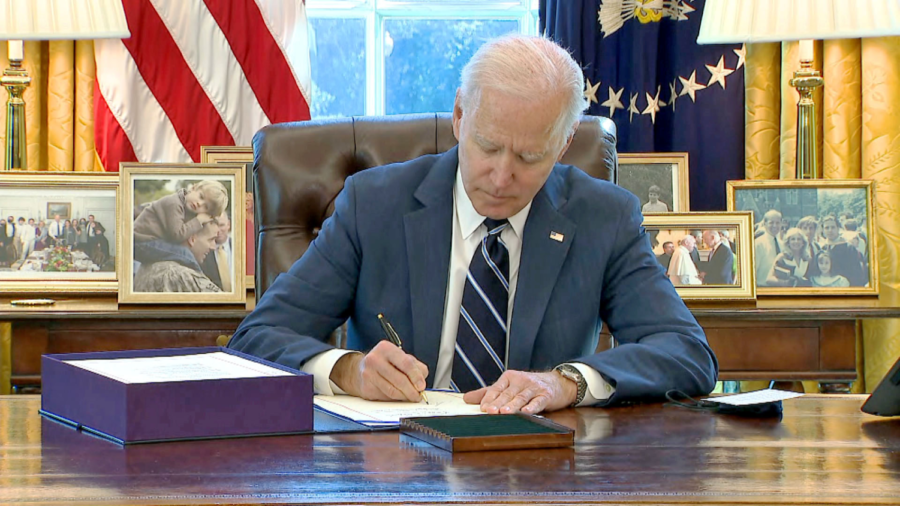The Fight For $15
March 22, 2021
A monumental $1.9 trillion-dollar coronavirus relief package was signed into law on March 11th by President Joe Biden. One amendment, however, , left in the dust, remains a critical issue for the future of Democratic legislation and the Biden administration: the push to raise the federal minimum wage to $15 per hour.
Progressive Senate Democrats, under the leadership of the chair of the Senate budget committee Senator Bernie Sanders (I-VT), attempted to include an amendment to the relief bill that would raise the federal minimum wage to $15 per hour from $7.25 per hour over four years. The senators attempted to use a process called “budget reconciliation” which would allow them to include the amendment without the 60-vote-threshold needed to stop an inevitable filibuster.
The idea of a $15 minimum wage is not new. In 2012, 200 fast food workers in New York City walked off the job and demanded a $15 minimum wage and a union, beginning the Fight for 15 movement. Over the years, a $15 minimum wage has amassed popular support from the American public. An Ipsos poll from March 2021 shows that 80% of Americans are in favor of raising the minimum wage with two out of three Americans in favor of raising the minimum wage to $15 per hour.
There are economic arguments in favor of and against raising the minimum wage, but one thing is clear:American productivity has far exceeded the minimum wage levels From 1938, when the minimum wage was established, until 1968, the minimum wage generally followed the increase in both inflation and productivity. As the American economy produced more, wages were raised. Since 1968, the minimum wage has stagnated (and even decreased) while productivity has more than doubled. According to the Center for Economic Policy and Research, if the minimum wage continued to match productivity today, it would be at $20-25 per hour.
Since the minimum wage was established, it has been raised on average every three years. It has now been over 11 years since the last time the minimum wage was raised.
According to the Economic Policy Institute, raising the minimum wage to $15 would directly lift the wages of 28.1 million workers, and the spillover effect of employers giving raises to those who make above $15 to retain employees would lift the wages of another 11.6 million workers. One of the main arguments against raising the minimum wage is that it would increase unemployment for low-wage workers. A meta-analysis of 37 studies on real life cases involving the minimum wage and employment done between 2000 and 2015 by Paul Wolfson and Dale Belman find “no support for the proposition that the minimum wage has had an important effect on U.S. employment.”
Businesses for a Fair Minimum Wage, a national network of business owners and executives, say that raising the minimum wage would lead to a decrease in turnover and an increase in sales for small businesses. They also claim that an increase in minimum wage would lead to an increase in morale and productivity. As of Feb. 24, 2021, their statement advocating for a $15 minimum wage has around 600 signatures from small business owners.
Arguments against raising the minimum wage focus on unemployment and small businesses. A Congressional Budget Office study found that raising the minimum wage to $15 per hour could reduce employment in the US by 0.9% or about 1.4 million people. Opponents of a minimum wage increase also claim that it would hurt small businesses and could cause some businesses to close down. It is unclear whether this would actually happen or not.
A minimum wage increase will remain an important part of the Democratic platform in the years to come. Senator Sanders said that raising the minimum wage is a moral imperative. Along with the Senate, White House Press Secretary Jen Psaki confirmed that Biden is absolutely committed to raising the minimum wage to $15 per hour. Because it is not included in the recent stimulus bill, however, a $15 dollar minimum wage will require bipartisan support in order to pass the Senate.
